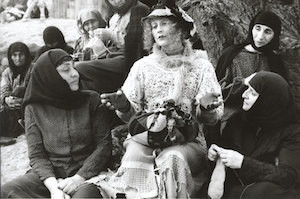Veronika Metonidze, the President of the Georgian Association in the USA, is stepping down after a productive four-year term. The Board of Directors extends their thanks to Veronika for her dedicated service and significant contributions during a period marked by several global and regional challenges. These include the COVID-19 pandemic, Russia’s invasion of Ukraine, and Georgia’s efforts towards European Union candidacy. For those interested in learning more about Veronika’s achievements and initiatives, a video retrospective is available. As a practicing US attorney and international consultant, Veronika brought her wide-ranging experience into her presidency. She focused on boosting U.S.-Georgian relations, especially in response to aggressive Russian expansionism, by reaching out to U.S. government institutions and the American public. Veronika has played a significant role in promoting Georgian culture, helping to increase awareness and appreciation for Georgia’s history both within the Georgian community and beyond.
Moving forward, Veronika will take on the role of Treasurer within the Association, continuing to offer her expertise and leadership on the board. She will also remain at the forefront of the Association’s critical advocacy efforts within the Central and East European Coalition and the American Coalition for Ukraine, as well as contribute to various upcoming projects.
Salome Tsereteli-Stephens has been elected as the new president effective March 8, 2024. Salome has been a member of the board and has taken on several projects during her membership. Salome has been working in the international development field for over 20 years and is committed to seeing Georgia advance its democratic, Western aspirations. She holds a law degree from Tbilisi State University and is currently director of Learning, Evidence, and Impact at the American Bar Association Center for Global Programs. She also serves as adjunct professor at the American University where she teaches a graduate-level course on project planning, monitoring, and evaluation at the School of International Service. She is fluent in Georgian, English and Russian and conversant in Turkish, German, and Spanish. Salome moved to the United States from Georgia in 2012 and resides in Maryland with her husband and three children. As a mother of Georgian-Americans, she is also passionate about strengthening cultural and linguistic ties between the two countries.
The Board of Directors wishes Salome the best and looks forward to working with her in continuing the important work of the Association.
John (Tsotne) Dadiani is stepping down from his role as treasurer after five years and will remain on the board of directors to continue his valuable contributions to the Association. The Board of Directors of the Association recognizes and thanks Tsotne for the tireless service to the common goals and his leadership for over nine years as the board member.
Eka Imerlishvili was voted in as the new secretary of the Association effective March 8. Eka has been a member of the board and has contributed valuable efforts to the work of the Association. We welcome her in this new role and wish her success. Eka is a strong advocate of gender equality and social inclusion and has worked, spoken and written on these issues over the past 15 years. As a recipient of US State Department’s Global Undergraduate Exchange Program (UGRAD) scholarship, she is a devout believer and supporter of inter-cultural exchange initiatives for their life-changing impact on individuals, communities and countries alike. Eka hopes that her new role as the secretary at the Georgian Association in the USA will contribute to strengthening ties between Georgia and the US through similar programs and initiatives.


























































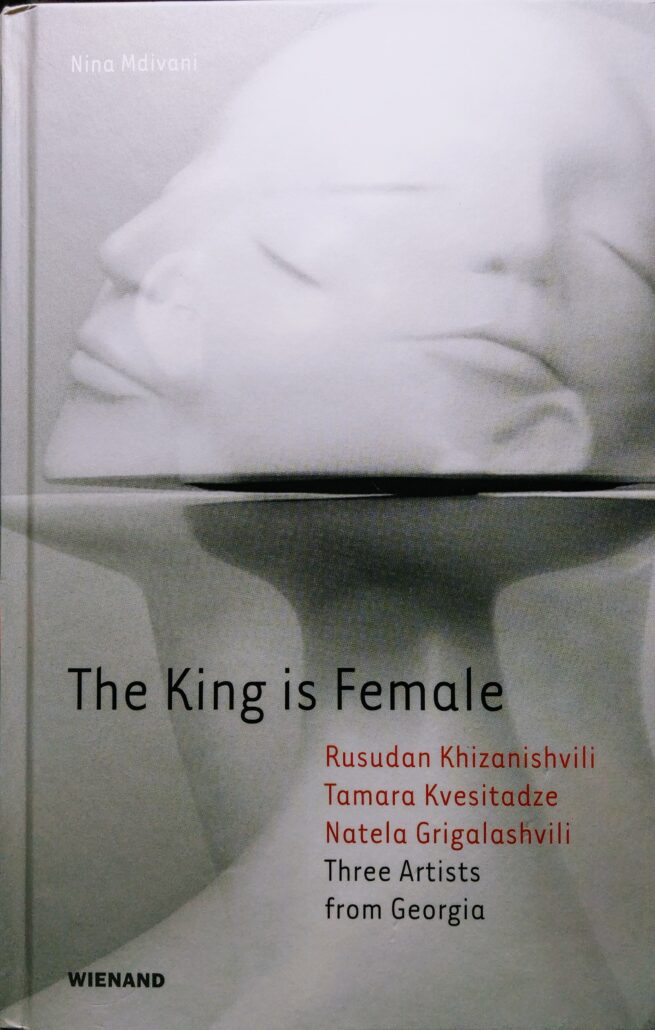
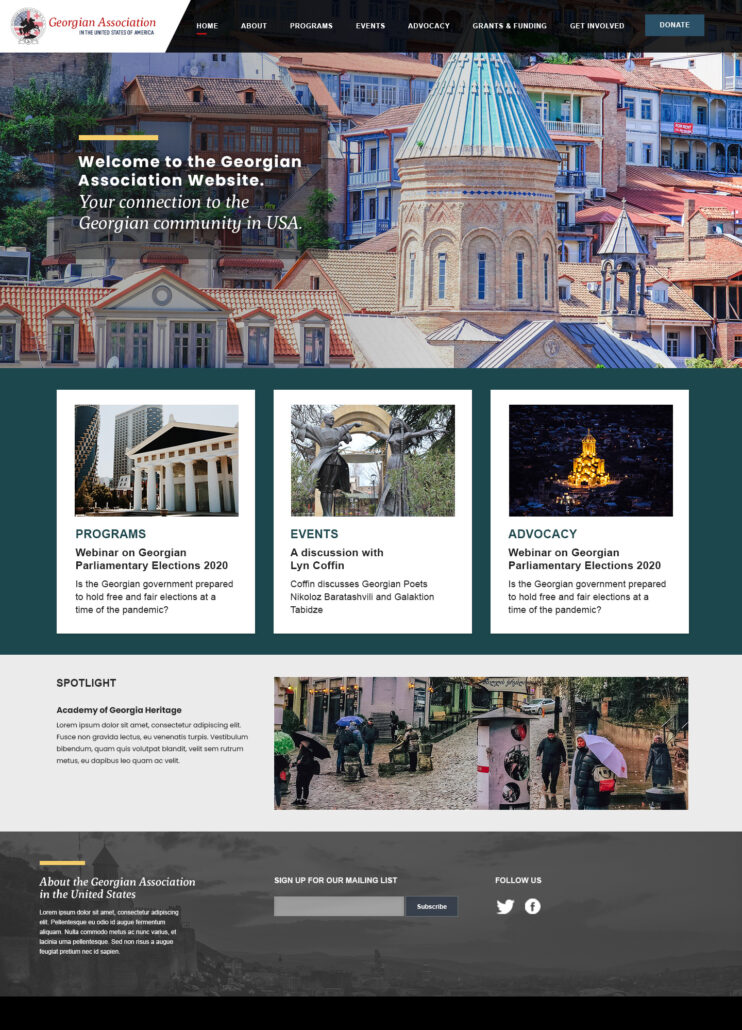





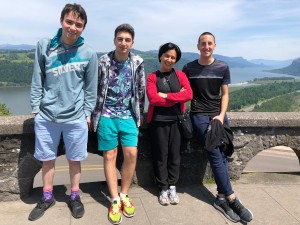
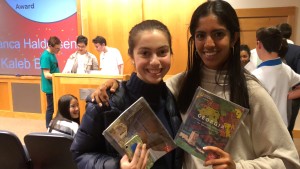

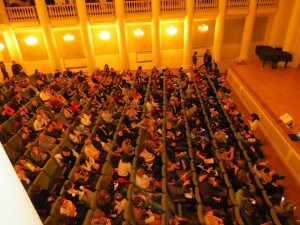
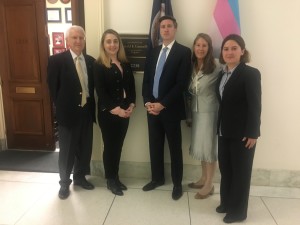
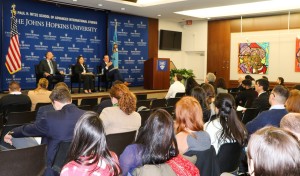
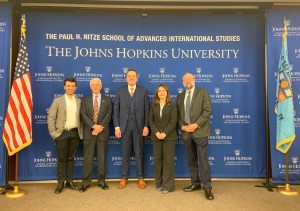
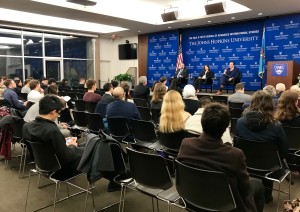
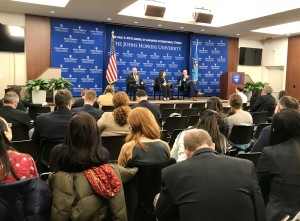
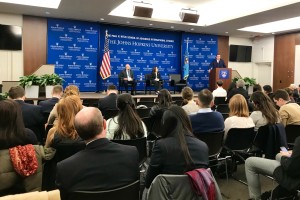
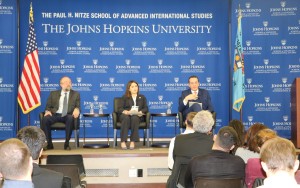
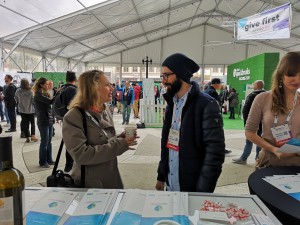
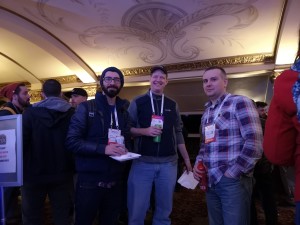
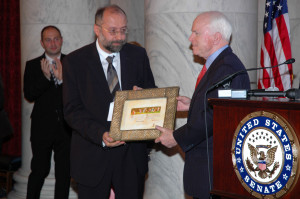
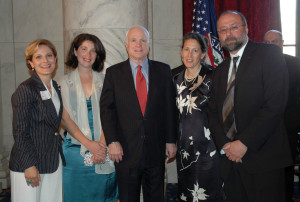
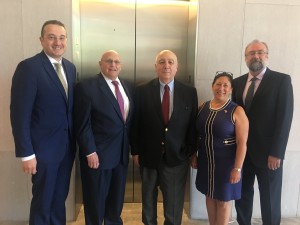
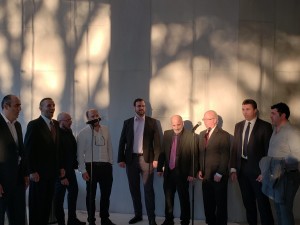
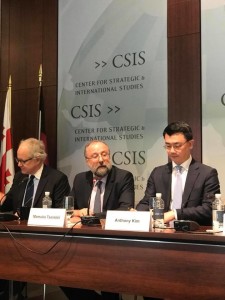

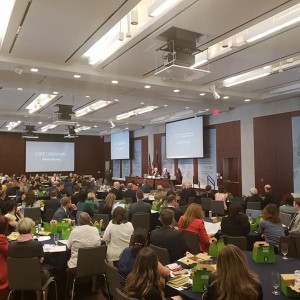
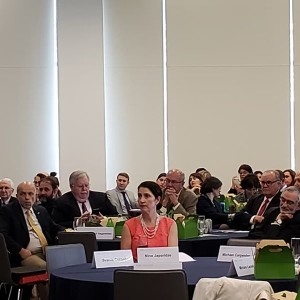
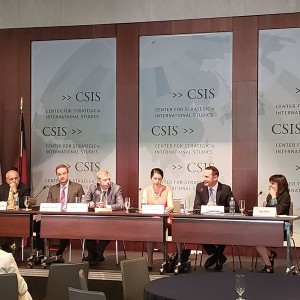
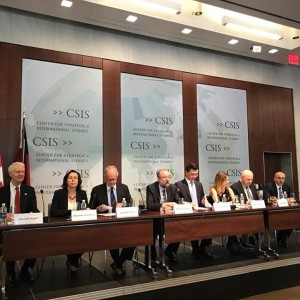
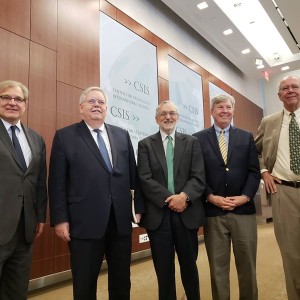
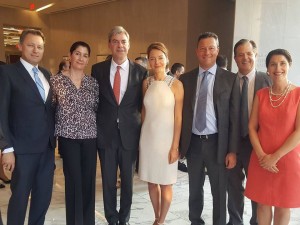
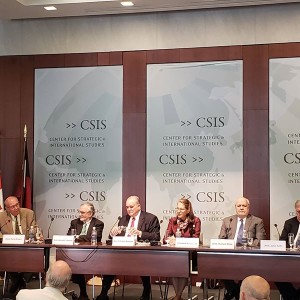
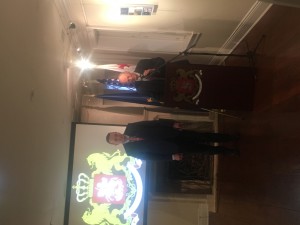
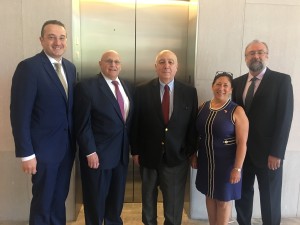
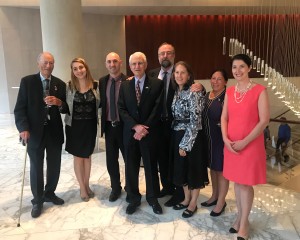
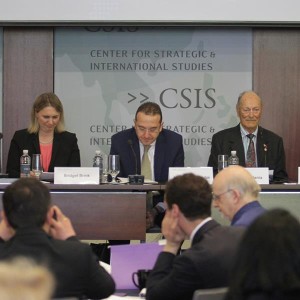
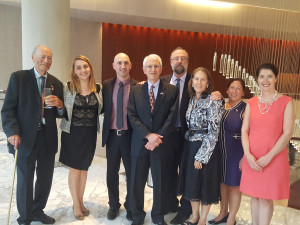



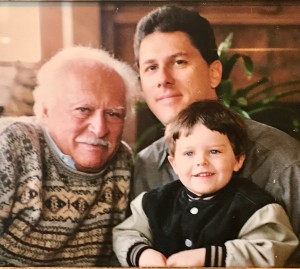














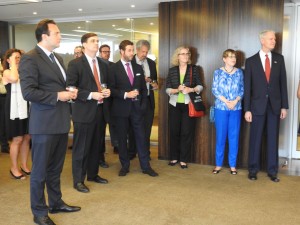



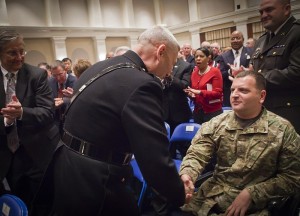
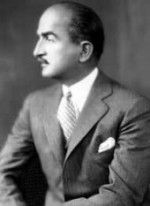 portrayal of the Madonna in Max Reinhardt’s unique 1911 pantomime spectacle play The Miracle. He briefly served as the Georgian ambassador to Italy until the establishment of Soviet rule in Georgia in 1921. He and his wife then moved to the United States. Mr. Matchabeli wanted American citizenship, but wasn’t willing to relinquish the glamour of his title as Prince, so he petitioned for the right to use the title as his first name. So from 1934 onward, he was Mr. Prince Matchabeli. The prince was an amateur chemist who began creating perfumes for his friends and family as a hobby. In 1924 he and his wife, now known as Princess Norina Matchabeli, established the Prince Matchabeli Perfume Company. Norina designed the crown shaped perfume vial in the likeness of the Matchabeli crown. His first employees were all fellow exiled aristocrats. One Georgian writer of the time remembered them as the most courteous staff in the United States and the prince himself was a perfect spokesman for his product. He had a reputation for exquisite manners and refined appearance, ideal for selling perfume to American women. In 1928, Matchabeli’s perfumes were awarded the Grand Prix with gold medal at the expositions in Paris and Liege for their quality and originality.
portrayal of the Madonna in Max Reinhardt’s unique 1911 pantomime spectacle play The Miracle. He briefly served as the Georgian ambassador to Italy until the establishment of Soviet rule in Georgia in 1921. He and his wife then moved to the United States. Mr. Matchabeli wanted American citizenship, but wasn’t willing to relinquish the glamour of his title as Prince, so he petitioned for the right to use the title as his first name. So from 1934 onward, he was Mr. Prince Matchabeli. The prince was an amateur chemist who began creating perfumes for his friends and family as a hobby. In 1924 he and his wife, now known as Princess Norina Matchabeli, established the Prince Matchabeli Perfume Company. Norina designed the crown shaped perfume vial in the likeness of the Matchabeli crown. His first employees were all fellow exiled aristocrats. One Georgian writer of the time remembered them as the most courteous staff in the United States and the prince himself was a perfect spokesman for his product. He had a reputation for exquisite manners and refined appearance, ideal for selling perfume to American women. In 1928, Matchabeli’s perfumes were awarded the Grand Prix with gold medal at the expositions in Paris and Liege for their quality and originality.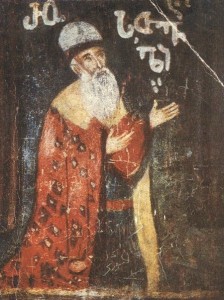 legend says that the poet abandoned public life, became a monk, and spent the rest of his days in one of the Georgian monasteries in Jerusalem (formerly the Georgian Monastery of the Holy Cross, the church now belongs to the Greek Orthodox Patriarchate of Jerusalem). It was there that his tomb was discovered centuries later, along with a fresco and a simple inscription “Shotha Rustaveli”. His Wikipedia Biography notes that the fresco and accompanying inscription in Georgian were defaced in 2004. But the fresco was subsequently restored.
legend says that the poet abandoned public life, became a monk, and spent the rest of his days in one of the Georgian monasteries in Jerusalem (formerly the Georgian Monastery of the Holy Cross, the church now belongs to the Greek Orthodox Patriarchate of Jerusalem). It was there that his tomb was discovered centuries later, along with a fresco and a simple inscription “Shotha Rustaveli”. His Wikipedia Biography notes that the fresco and accompanying inscription in Georgian were defaced in 2004. But the fresco was subsequently restored.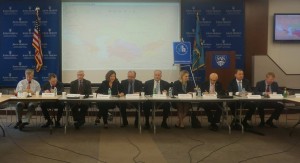 Georgian Association Mamuka Tsereteli and President of the Levan Mikeladze Foundation of the Caucasus Studies Tina Mikeladze opened the conference on behalf of the organizers. The conference brought together in two panels noted scholars, policy analysts, program implementors and representatives of the U.S. Department of State. The Georgian government was represented by the State Minister on European and Euro-Atlantic Integration Mr. David Bakradze, and Deputy Minister of Foreign Affairs David Dondua. The Georgian Embassy was represented by both Ambassador Archil Gegeshidze and Deputy Chief of Mission George Khelashvili. The Georgian representatives expressed concern about the “creeping annexation” of their country and their disappointment at the lack of movement towards a Membership Action Plan (MAP) for NATO. For their part, a number of American panelists, including Deputy Assistant Secretary of State Bridget Brink reiterated continued US support for Georgia’s Euro-Atlantic integration.
Georgian Association Mamuka Tsereteli and President of the Levan Mikeladze Foundation of the Caucasus Studies Tina Mikeladze opened the conference on behalf of the organizers. The conference brought together in two panels noted scholars, policy analysts, program implementors and representatives of the U.S. Department of State. The Georgian government was represented by the State Minister on European and Euro-Atlantic Integration Mr. David Bakradze, and Deputy Minister of Foreign Affairs David Dondua. The Georgian Embassy was represented by both Ambassador Archil Gegeshidze and Deputy Chief of Mission George Khelashvili. The Georgian representatives expressed concern about the “creeping annexation” of their country and their disappointment at the lack of movement towards a Membership Action Plan (MAP) for NATO. For their part, a number of American panelists, including Deputy Assistant Secretary of State Bridget Brink reiterated continued US support for Georgia’s Euro-Atlantic integration.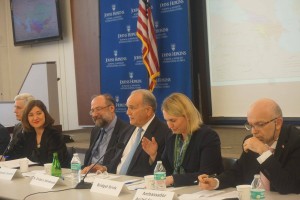 by the GA President Elisso Kvitashvili, on Georgia’s ongoing need to implement internal reforms that some panelists believed would enhance Georgia’s overall security through greater legitimacy of the government. Several panelists decried the lack of job creation, poor social service delivery, and lack of innovation in the business sector as stumbling blocks to Georgia’s economic development. There was agreement that the West needed to devote more attention on Georgia especially in her role as a hub in the developing Silk Road Transport Corridor.
by the GA President Elisso Kvitashvili, on Georgia’s ongoing need to implement internal reforms that some panelists believed would enhance Georgia’s overall security through greater legitimacy of the government. Several panelists decried the lack of job creation, poor social service delivery, and lack of innovation in the business sector as stumbling blocks to Georgia’s economic development. There was agreement that the West needed to devote more attention on Georgia especially in her role as a hub in the developing Silk Road Transport Corridor.
